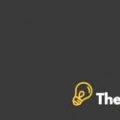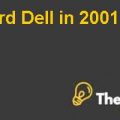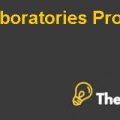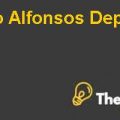
Introduction
The whirlpool is the world largest manufacturer of the variety of major house hold appliances such as dryers, cloth-washing machines, refrigerators and cooking ranges. In addition to this, it is the market leader of household appliances in the Canadian market and manufactured appliances under 13 main brand names in 12 countries. There is a legislation according to which all the manufacturers and brand owners are required to take the responsibility for end -of –life (EOL) collection and recycling of products. Each manufacturer in the industry has three options regarding the potential EPR legislation. These include oppose the legislation, join IFO to meet the EPR requirements and to set op own IFO.
Analysis
The reserve logistic is an important system for a company as it provides various benefits ranging from financial gains to the social and environmental aids. Despite of these benefits, there are some challenges that are associated with the development of reserve logistic that create difficulties for the company to successfully develop and implement the reserve logistic system. Moreover, the key challenge that is associated with the developing of the reserve logistic includes increasing the recycling and reuse of the products while enhancing the sustainability.
Another issues that is associated with the reserve logistic system in determining how to track the old appliances throughout their life cycle in order to meet the target of the diversion. In addition to this, the manufacturers have to struggle with the economic importance of unregulated recyclers as well as continuous monitoring and improving of the reserve logistic system are other issues that are linked with the reserve logistic.
The Whirlpool Corporation should set up in-house program to collect the used appliances at the end of the life cycle in comparison with the IFO in order to handle the EPR issue. As, the setting up own in-house program will provide more benefits to the company than follow IFO to handle issues. All the costs and expenses are averaged or spread across all stewards on a piece or weigh basis.
Moreover, the IFO needs additional funds in order to make improvements as well as investments for the EPR program. The IFO are more expensive option in comparison with setting up the in-house program as well as it provides the competitors with an opportunity to decrease their IFO cost.
While on the other side, setting up of the in-house program will provide the company with an opportunity to have full control of the customers as well as all the cost that is associated with the EPR program. This approach is good for the environment as it will allow the company to effective recycling of the products immediately after the end of their product life cycle.
Also, it assists the company to efficiently focus on making and delivering of the products more sustainably as well as setting up in-house program will make it easier to recycle the products while reducing the toxic waste. Likewise, it provides the company with the major financial benefits as by allowing the company to develop and design the products that last longer that will result in lowering the company cost that is require during the end of life process.......................
This is just a sample partial case solution. Please place the order on the website to order your own originally done case solution.
The new legislation may require that all appliance manufacturers and brand owners to take responsibility for the end of life (EOL), collection and recycling of products. Senior Manager of Government Relations for Whirlpool Corporation (Whirlpool) has been updating his colleagues on the proposed expanded Ontario producer responsibility (EPR) legislation. Whirlpool was a Canadian leader in the market of home appliances, such as washing machines, dryers and stoves. With the EPR. Whirlpool, among others, will now have to manage - or pay in management - a more complex model with reverse logistics. Each device manufacturer for at least three options from which to choose: he can argue the law was not necessary, he can join the industry-funded institutions (MFIs) to meet the requirements of the EPR, or it can create its own IFO «Hide
By Ken Marcus, David A. Wood Source: Richard Ivey School of Business Foundation 12 pages. Publication Date: August 8, 2011. Prod. #: W11309-PDF-ENG












